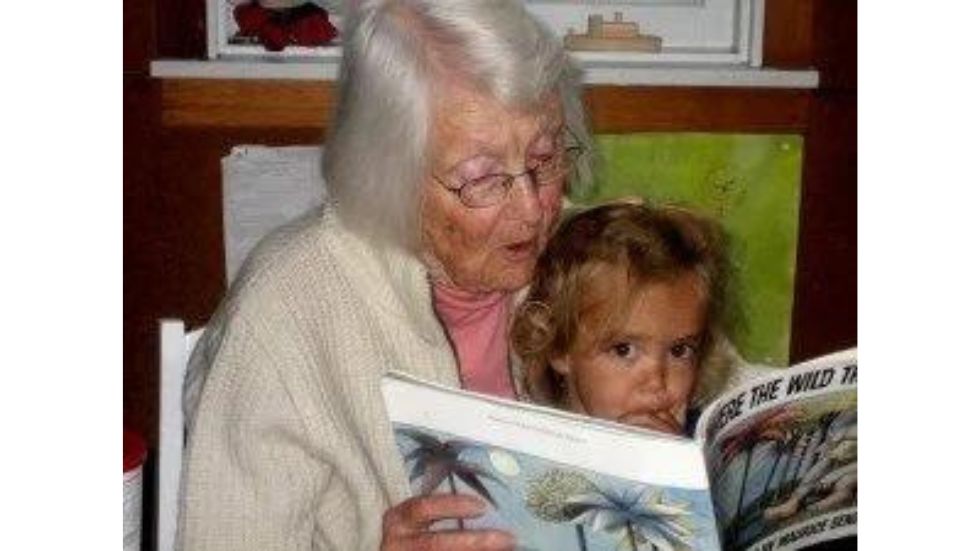
by Lisa Fuller | Sep 8, 2014 | Connection & Love, Cooperation, General, Parenting, Power struggle
 Does your pushing, coaxing and forcing your teen to clean up after herself fall on deaf ears?
Does your pushing, coaxing and forcing your teen to clean up after herself fall on deaf ears?
When my son leaves a slue messes in his wake it can be downright maddening!
When you spill milk, wipe up after yourself, who do you thinks going to do it? What’s the dirty laundry doing on the floor? It’s no wonder you can’t find any clean socks, your dirty ones are scattered throughout the house!
Unfortunately these “helpful reminders” do little to change his behavior.
My nagging is driven by two fears…
- the fear that this kid will grow into an unemployed, slovenly 40 year old,
- the fear that I’m raising an entitled kid who thinks, “why should I look for my socks when magically another pair will appear in my drawer?
In today’s story, Tammy, school principal, parenting educator, and parent, shares what she learned as a result of her battles with her perennially messy daughter.
 Tammy’s story:
Tammy’s story:
My daughter Natasha has no issue with living in a messy room.
However, I do, so we made an agreement, years ago, that Sunday would be her cleanup day.
I found myself getting upset and refusing to enter her untidy room to say goodnight or even hangout with her.
She’d say, Mom, I’m internally organized so it doesn’t bother me to be a mess externally.
I told her it bothers me, and the rest of the family, so we need a plan to address the group’s desire for organization.
For the past four years, I’d go into Natasha’s room on Sunday mornings and ask her, what’s your plan for cleaning your room today?
Her response was usually, I’ll get to it eventually, or I’m on it. But there’d be no signs of movement.
On a good day I’d say something like, would you like me to help you get started? or I have faith in you to get it done.
She’d respond, I like doing it myself, or thanks for believing in me Mom. Five hours later she’d still be cleaning her room – looking pretty miserable.
On these so called “good” days while I wasn’t effective at motivating her, I wasn’t pushing her away.
On other days – let’s call them the bad days – I’d go into my mommy tirade and say things like, “how can you live in this pigsty?” “It’s disgusting in here!”
Here’s why her messy room was painful for our entire family.
My negative energy put the entire family on edge – they’d slink away into their own worlds for fear of crossing paths with my anger.
The unspoken truth was that my tornado of frustration and anger was far worse then her the physical mess.
One day it struck me that I was the one who needed to change. I couldn’t MAKE her do anything so I backed off as best I could.
Then it happened – one Sunday morning was different. She woke up, had breakfast, cleaned and organized her room in an hour and had the rest of the day to read, play, do homework, paint pumpkins, go with me to the market, etc. I hadn’t said a word to her because by the time I peeked into her room, she was already in motion.
It dawned on me that this is how growth happens – for me it was a slow process – for her it seemed to happen overnight!
First what changed was me and what followed was a chance for Natasha to grow, at her own pace. I would like to think that our positive communication, over the years, those good days, helped to motivate her to finally clean her room on her own but I’ll never know for sure.
Whatever clicked for Natasha wasn’t as important as what clicked for me: I can’t “make her” do anything, but I can certainly encourage her and maintain a respectful way of communicating while she learns. It’s the process in which she learned how to care for her own things that mattered not the urgency for her to learn on my time line.
Back on that day when I saw her room was clean, I was shocked to say the least but tried to play it cool. I looked at her with a knowing, loving smile and said, “I notice you got your room clean today…how’s it feel?”
She looked so proud of herself and said simply, “If feels great!”
When you find yourself freaking out that your teen is a slob and fear they’ll still be one at 64, remember Tammy’s story. Being human, Tammy reacted in anger sometimes AND sometimes she was able, through self-awareness, to step back.
To me, it’s a testament to having faith in our kids.
There’s no magic fairy dust to MAKE them adopt your priorities. Your most powerful tool is CONNECTION.
Recommendations to foster and maintain your connection with your teen:
- Treat her with respect and when you don’t feel respected – as calmly as you can let her know you will speak with her at another time when she can be respectful – leave the room to give yourself breathing room.
- Apologize when you’re off your game, modeling that even you make mistakes so she can more readily admit and take responsibility for her mistakes.
- Take opportunities to connect – even when it feels inconvenient.
- Use light humor to keep power struggles at bay.
Recommendations to survive teen slob years:
- Create boundaries so that the mess is confined to your teens room.
- Allow nature to take it’s course – don’t rescue her when items are lost, dirty, etc.
- Take time to train your adolescent to do her own laundry – this way her entire clothing cycle is her responsibility and even better, you can have empathy when her favorite shirt is dirty.
- Remember that your child has different priorities than you do and that that is a good thing!
When you do your best to model what you value; respect, connection, and in this case, tidiness and communication – you’ll more likely see these qualities bloom, in their own way and time, in your developing adolescent.
What power struggle are you currently having? Share in the comment section below what you learned here that will support you.
If you haven’t already done so, join me on this journey!
Wanna talk? Schedule a time here.

by Lisa Fuller | Jun 13, 2014 | Chores, Connection & Love, Cooperation, Encouragement, General, Parenting
Let’s face it. Most kids today s–l—i—-d—–e when it comes to contributing.
You go through the motions of assigning chores, but most of us find that it’s just easier to do them ourselves. Especially if the alternative is to beg, cajole and demand that they take out the recycling, take out the recycling… take out the recycling!
Who can blame you? Why bother? It’s painful all the way around.
Here’s what I learned during supper with my Granny. From my vantage point, she’s not your average centenarian.
Sure, it’s the middle of summer and she’s wearing her blue wool sweater. But she’s got ALL her wits. — Only her hearing and sight are diminished.

Granny reading with my daughter
At 103, she’s a beauty with a blunt white bob, light blue eyes and a genuine interest in others that permeates every conversation.
She loves to ask about details. And she’s interested in mine.
On this occasion I made a conscious effort to ask her the questions… at least one.
Dinner with Granny
Due to her hearing loss, a snippet of our conversation (in a dining room full of people) went like this…
GRANNY, I’M STILL TEACHING PARENTING CLASSES.
Won-der-ful! (her pronunciation deliberate and bright)
I’M CURIOUS ABOUT YOUR EXPERIENCE AS A MOM. AFTER 78 YEARS OF PARENTING, WHAT WOULD YOU SAY WAS THE MOST IMPORTANT LESSON?
I really don’t recall (she waves her hand and shakes her head as if that’s too far back to remember)… but mother and father (she’s referring to her parents) did a marvelous job.
WHAT DID THEY DO THAT WAS SO MARVELOUS?
(She pauses for a few moments to consider before answering) I was allowed to help with a lot of things. We didn’t have any help so we were the help.
She grew up in a modest, hard working immigrant family in Perth Amboy, New Jersey. Her mother from Denmark, her father from Norway and she the youngest, by far, of 3 and the only girl to boot. She said her brothers always teased her saying she was favored.
So when she says she was allowed to help, she means it – she felt special sitting beside her mother making and mending clothes, weaving rugs, cooking meals, planting vegetables in the garden, etc.
Granny is a practical woman. Learning useful skills that enabled her to contribute to the wellbeing of her family was deeply satisfying.
Our conversation went on, she acknowledged how proud I must be of my growing children – my voice echoing throughout the dining room.
It’s that simple.
I’m struck by the power of a sense of usefulness to withstand the test of time. With love and caring as a cornerstone, Granny’s sense of being a useful member of the family is paramount in her childhood memories.
I know I struggle to get my kids involved in day to day housework. You and I both know, it’s so much easier to just do it ourselves!
Over dinner last summer Granny reminded me of just how worthwhile that effort is.
My story
Yesterday I had laundry that needed to be unloaded, carried, sorted and put away. Seven year-old S. was in a bit of a snit after-school and I knew asking her to help with this relatively light task could easily back fire and become an unpleasant battle.
Here’s what happened:
Me: I’m going to get the laundry – you can come give me a hand or meet me to fold it in my room.
She didn’t say anything but scurried along beside me (things are looking good!)
I took towels out of the drier.
Me: How many can you carry?
She got silly.
S: Mommy, put them all on my head, I CAN DO IT!
I played along for a bit and then just grabbed a few towels so that she could see as she walked, covered in towels, to our room.
In my bedroom she watched as I began folding clothes and towels and stacking them on my bed.
Me: How about you take alike things and put them away in your drawers – like this stack of pants?
S: Okay. (Miraculously she purposefully takes a few trips, arms fully loaded, and then decides it would be interesting to switch with me and be the folder)
We went on like this until the task was complete – all clothes and towels folded and put away. This is a minor miracle – usually things get put away over the course of a day or two – often clothes take the most direct route – basket to body).
Here are four fundamentals to keep in mind to increase your odds of success when encouraging kids to pitch in:
- Do house work WITH your kids – side by side if they are 7 and under. When they’re young they still love doing most every task with you so use that to your advantage while you still can!
- Shift your focus from getting the job done perfectly to seeing it as an opportunity to be together teaching your child life lessons/skills.
- Take time for training. With younger kids this means methodically doing a task together, with older children it means using a specific list of ”to do’s”, rather than a vague “clean up the playroom.”
- Hold the jobs lightly. While follow through is extremely important, you’ll win more cooperation by saying “I notice the dog looks hungry,” rather than demanding, “Rachel, feed the dog right now!”
Let’s brainstorm specific jobs kids can help with around the house. I hope this list encourages you in this challenging and wildly worthwhile parenting responsibility.
Here’s a list by age:

My daughter cleaning up a spill
2 to 3
- put toys away
- feed pets
- wipe up spills
- put dirty clothes in hamper
4 to 6
the list from above plus
- unload clean flatware from dishwasher
- weed
- water plants
- set house alarm
- bring in mail
- help prepare meals
- scramble eggs

My niece preparing apples for crisp
7 to 10
the lists from about plus
- vacuum
- help make and pack lunch
- help do laundry
- help load/unload dishwasher
- help grocery shop
- help make dinner (apple pie)
- take pet for walk
- make toast
10 to 13
the lists from above plus
- fold and put away laundry
- wash car
- wash windows
- babysit younger siblings
- take out garbage & recycling
- garden tasks
- run walkable/bikeable errands
14 and up

I’m helping Granny make her famous apple pie crust!
the list from above plus
- grocery shopping
- cooking full meals for family
- extended sibling sitting
- transporting siblings and running errands in car
Being allowed to contribute has an impact that lasts a life-time.
I’ve only scratched the surface with these ideas. Please share yours in the comment section below and help grow these lists…and in doing so – help us all have more satisfied families!
If you haven’t already done so, join me on this journey!
Wanna talk? Schedule a time here.

by Lisa Fuller | May 27, 2014 | Communication, Cooperation, Discipline, Encouragement, General, Parenting
It’s a typical morning, nothing out of the ordinary.
The boys haven’t brushed their teeth and I’m yelling, BRUSH! And then Get your rears in the car NOW.
It feels like we do this every. Single. Day.
When I get in the car, I feel down – this isn’t how I want my boys to get off to school in the morning. Yelling let’s go, let’s go, let’s gooooo! – Probably isn’t the most inspirational start to their day.
Sound familiar? I know we all prefer mornings with our kids to be fueled by calm cooperation instead of high-volume threats and pleas!
It is possible.
I got the idea to create scripts because in a parenting class while role-playing a conversation, between a parent and teen (forgetting to talk out the garbage), using Positive Discipline tools, an observing parent vigorously raised her hand, “You were going really fast just then and I’m not sure what happened but it sounded awesome. Could you go through it again but this time slowly so I can understand?”
At first, the words may feel a little stiff or clunky – just like training wheels – but it’s worth giving them a try. Especially if you leave the house in the morning shaking your head (or crying), wondering why parenting is so darn hard.
The Conversation Guide slows down the parent child interaction. Think of it as parenting in slow motion, word by word, so you can rewind at any time.
It’s true, there are many ways to parent that fit with the Positive Discipline principles. My hope is that the four approaches I’ve offered here give you confidence to find your genuine voice. One that’s both kind and firm – respectful of your child and yourself.
Okay, back to my morning with the boys… what could I have done differently? Let’s see what happens when I ask a question instead of yelling demands at them.
“Guys, what do you need to do before you get in the car for school?” They actually mumble “brush our teeth…”
“Yes, great, I’ll meet you in the car when you’re done.”
Does that sound too easy? With enough repetition, time and the resulting trust, it works.
And if you get zero response to your question – or just eye-rolling – you can calmly let them know you’ve decided to wait in the car until they’re ready (take a good book so you’re doing something pleasurable while you serenely wait).
The two keys are:
- You follow through with what you say you’re going to do – this builds trust
- You remain calm, cool and collected – trust x 100
CONSIDER⇔SHARE⇔ACT
What get’s in your way of having that calm morning you so desire?
What’s worked for you?
What gets in the way of you practicing these scripts? Share in a comment below so we can learn from each other.
If you haven’t already done so, join me on this journey!
Wanna talk? Schedule a time here.

by Lisa Fuller | Apr 29, 2014 | Connection & Love, Cooperation, General, Parenting, Self-regulation
You know those times when you’ve just got to get your child to do something important (go to the doctor, to swim class, the dentist…) and she/he refuses to cooperate? Then you think, “Why can’t they just get with the program this one time? Why does everything have to be so hard?”
Well, let me introduce Susan, mother of 9 year-old Alex, and a recent graduate of my 7-week parenting class. In this story, Susan shares the remarkable shift that happens when she uses tools she learned in the series. Without giving too much away, here are the two conversations (with very different outcomes) between Susan and Alex:
BEFORE taking Positive Discipline Class
Susan: “Hey Alex, Dad and I forgot to tell you – Swim lessons start today, so you need to get ready to go.”
Alex: (Playing with Legos) “What? I don’t want swim lessons! You know I hate lessons!”
Susan: “Alex, learning how to swim is really important – it’s about safety.”(Susan begins to feel angry and thinks, “What’s so hard about going to swim class? Swimming is great. This should be fun. Why is it so difficult?”)
Alex: “I don’t want to.”(He starts to crush his elaborate Lego creations). “I’m not going.”(He sits defiantly on the couch.)
Susan: “Swim lessons are a privilege, young man. That’s enough of your whining. Stop it. Now!”
Alex: “You never ask me what I want – I HATE YOU!”
Susan: (Thinking… “I hate this. I hate how hard it is to motivate my son. Forget it, I give up.”) She stomps off to another room to grab the swim gear.
Susan: “We paid for this class. Now get up and get to the car!”
Susan and Alex are both miserable and swim lesson does not go well.
Sound familiar?
AFTER taking Positive Discipline Class
Susan: (Taking some time beforehand to prepare herself.) “Hey Alex, Dad and I forgot to tell you but you’ve got swim lessons today. I’m really sorry that we’re springing this on you, but we gotta go now. I’ve got your swim gear and a snack for the car.”

“Both of these Positive Discipline Tool Cards were key. I feel I learned the most about the power of validating feelings!“
Alex: “What? I don’t want swim lessons! You know I hate lessons!”
Susan: “Honey, you only have to go four times and we found a new place where there are fewer kids so you’ll be able to hear better.” (She shows remorse for not giving him any warning and feels empathy for him, knowing that while he hates lessons, he actually loves to swim.)
Alex: “I don’t want to!” (He starts to crush his Lego creations.) “I’m not going.” (Alex plops himself defiantly on the couch.)
Susan: “Alex, sweetie, I know this is upsetting, but destroying your Legos is not OK. You can hit a pillow if you’re angry.” (She allows him to express his feelings. She calmly and firmly tells Alex that swim lessons are something he just needs to do. Susan uses only one or to sentences instead of lecturing him.)
(Alex violently hits the pillow. Susan leaves the room. Then she remembers that staying with him might feel encouraging to him. She goes back and keeps him company but doesn’t try to fix or change his feelings.)
Susan: (After some time has passed, speaking gently…) “Honey, it’s time to go.” (Alex gets up and together, they walked to the car. During the drive Susan felt connected to her son through their easy conversation and a palpable sense of calm. Alex even seemed to enjoy the lesson!)
This story’s a beautiful example of how empathy and encouragement go a long way toward winning genuine cooperation. Through her use of grounded positive energy and empathy Susan not only accomplished her goal of getting Alex to his swim lesson, she laid the groundwork for a foundation of trust.
Later she she told me,
It was a tiny miracle that I didn’t lose it and Alex was able to get up to walk to the car. It worked mostly because I didn’t flip my lid. Being there while he hit the pillow actually calmed me down too! Now Alex is doing great with his lessons. He still complains, but there is an ease and matter-of-factness about our interactions.
Thank you Susan for sharing your story!
If you’re curious about deepening your parenting practice and learning the art of cooperation through empathy, check out my one-on-one coaching opportunities and it you’re in the Bay Area, my fall Positive Discipline Series.
CONSIDER⇔SHARE⇔ACT
What gets in your way of just being with your child while they’re caught up in a feeling? Next time a big emotion hits, try bearing it with an attitude of love and let us know what happens!!

by Lisa Fuller | Apr 14, 2014 | Connection & Love, Cooperation, Encouragement, General, Parenting
 Yesterday morning I had a simple, accidental revelation with my dexterous 7-year old daughter. Short on time, she decided to have a piece of toast for breakfast. Knowing I’m the best toast-butterer in the world, S. said, “Mom I need butter on my toast – please butter it for me.”
Yesterday morning I had a simple, accidental revelation with my dexterous 7-year old daughter. Short on time, she decided to have a piece of toast for breakfast. Knowing I’m the best toast-butterer in the world, S. said, “Mom I need butter on my toast – please butter it for me.”
My hands, immersed in sudsy, warm dishwater, scrubbing away at the long-neglected dishes, were not fit to butter toast. The wheels in my mind slowed, I sensed the opportunity at hand and replied empathetically, “Oh honey, my hands are all soapy, I don’t want to ruin your toast.”
Disappointed, S. tried again. “But mom…I’m not good at buttering toast and you’re really good at it!”
“Darn… sorry about that, Sweetie. Just look at these sudsy creatures!” I lifted my hands to show the yucky soapy mess that would envelop her toast.
Suddenly resolute, S. asked, “Okay Mom, where’s the butter?” A minute later with quiet pride she said, “Look Mom, I did it all by myself!”
Sometimes I have to be creative, play a bit silly, a bit incompetent or just plain unavailable, to get my kids to step up and take the initiative on a task well within their grasp or even one that seems a bit out of reach.
CONSIDER⇔SHARE⇔ACT
Have you had a similar experience? Share it or plan your “incompetence” ahead of time and let us know how you imagine it could encourage your child.
Your comments inform and empower other parents! Examples with kids of all ages encouraged!

 Does your pushing, coaxing and forcing your teen to clean up after herself fall on deaf ears?
Does your pushing, coaxing and forcing your teen to clean up after herself fall on deaf ears? Tammy’s story:
Tammy’s story:










